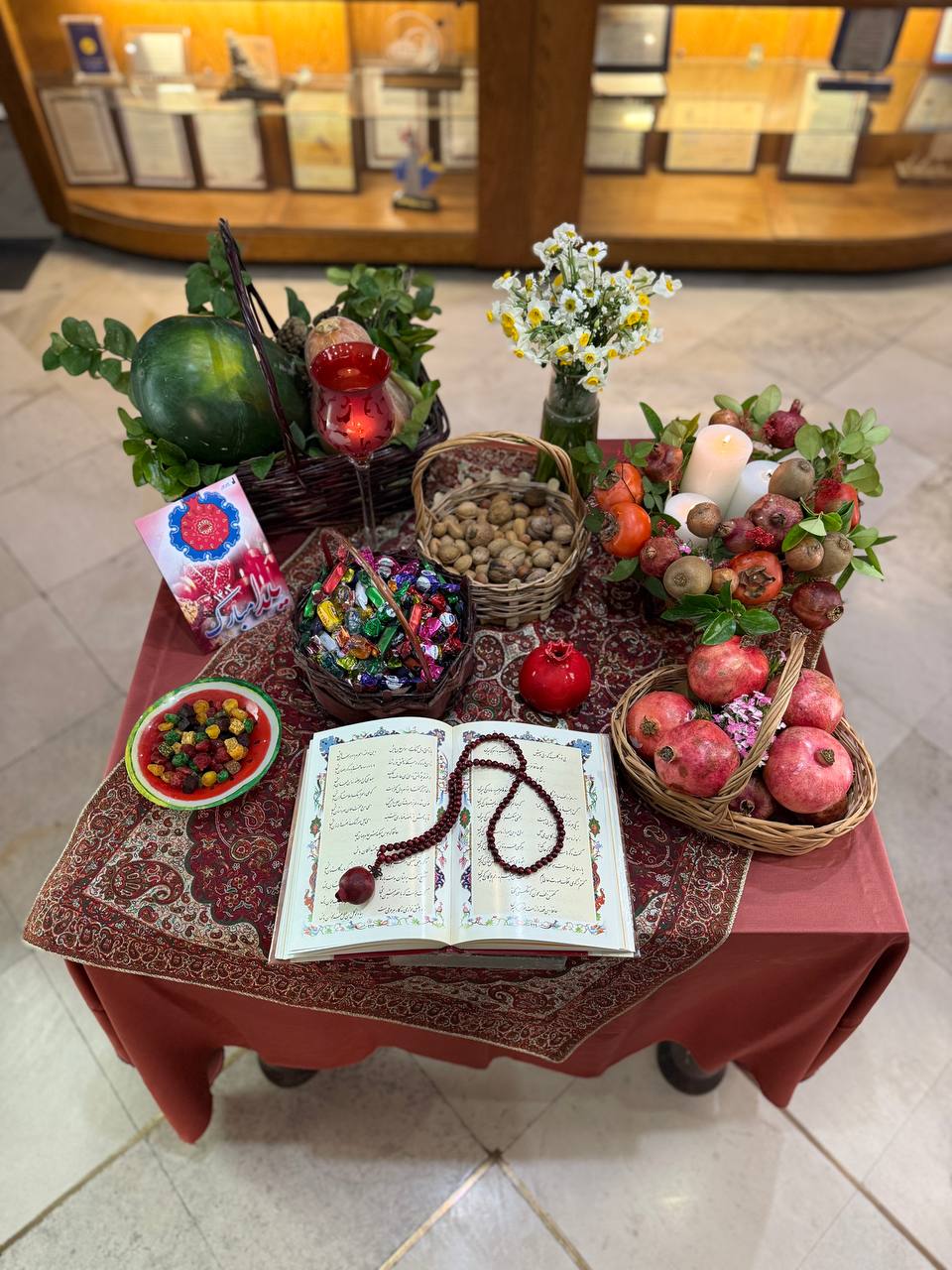
Shab-e-Yalda (Yalda Night) is one of the most ancient Persian festivals annually celebrated on or around December 20 or 21 by Iranians all over the world.
Yalda is a winter solstice celebration; it is the last night of autumn and the longest night of the year. Yalda means birth and it refers to the birth of Mitra; the mythological goddess of light. Since days get longer and nights to get shorter in winter, Iranians celebrate the last night of autumn as the renewal of the sun and the victory of light over darkness. On Shab-e-Yalda, people gather in groups of friends or relatives usually at the home of grandparents or the elderly to pass the longest night of the year happily by eating nuts and fruits, reading Hafiz poems, making good wishes, and talking and laughing all together to give a warm welcome to winter, and a felicitous farewell to autumn.
Eating is a delicious part of Yalda Night. Iranians eat nuts, watermelons, and pomegranates on this special night. Fruits of Shab-e-Yalda have symbolic significance as well. Some believe that watermelon symbolizes the sun by its spherical shape while others believe that eating watermelon keeps one safe from being hurt by winter diseases. Pomegranate is also a symbol of birth and its bright red seeds symbolize the glow of life.
Reading poems from Divan-e-Hafiz (Fal-e Hafiz) is an entertaining tradition of Yalda Night. Each of the members of a family or a group of friends makes a wish-while keeping it a secret- and randomly opens the book; then the eldest member of the family or friends reads the randomly selected poem loudly. Since the poem is believed to be the interpretation of the wish and the way it would come true, it is fun to interpret the poem and guess the wishes others make. In this way, the last and the longest night of autumn comes to an end happily and the first great day of winter begins.
Yalda Night is also celebrated in countries such as Afghanistan, Uzbekistan, Tajikistan, Turkmenistan, and in some of the Caucasian states such as Azerbaijan and Armenia whilst they share the same traditions as well.